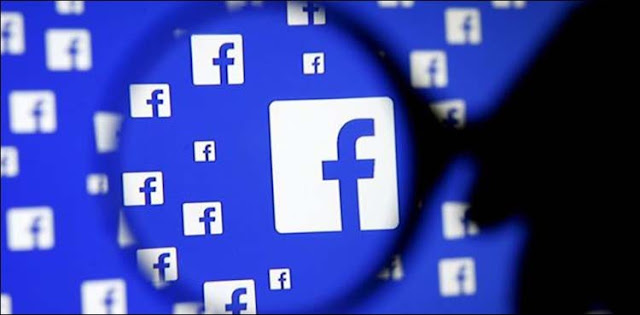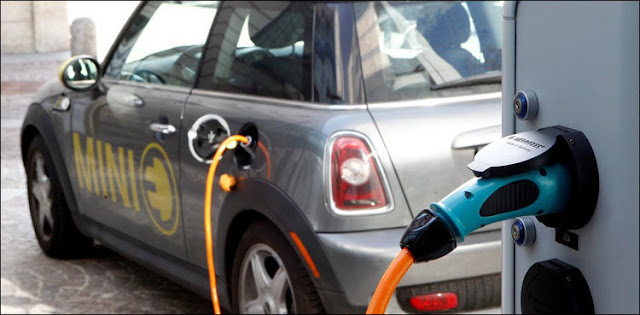Gulf News Media
These media sources are slightly to moderately conservative in bias. They often ... The Gulf News has a pro-Dubai bias and also has anti-Israel views. Reports ...
Geoffrey Rush denies misconduct allegations by co-star Yael Stone londonaccident.blogspot.com
Australian actor Geoffrey Rush has denied new allegations that he acted inappropriately towards an actress.
Orange is the New Black actress Yael Stone said the incidents took place when she and the Oscar-winning actor starred in a Sydney play in 2010-11.
She alleges that Mr Rush danced naked in her presence, watched her shower, and sent her sexual text messages.
Earlier this year, actress Eryn Jean Norvill accused Mr Rush of touching her inappropriately - a claim he denies.
On Monday, Mr Rush responded to Ms Stone's allegations, saying they were "incorrect" and in some instances "taken completely out of context".
"Clearly Yael has been upset on occasion by the spirited enthusiasm I generally bring to my work," the actor said in a statement released by his lawyer.
"I sincerely and deeply regret if I have caused her any distress."
'Incredibly uncomfortable'
In interviews with the Australian Broadcasting Corporation (ABC) and The New York Times, Ms Stone alleged that a string of incidents took place during a production of The Diary of a Madman.
The Australian actress, then 25, received text messages from her co-star, then 59, that became "increasingly sexual" in nature, according to her accounts.
STARCOM PAKISTAN announces itself at the 18th Dragons of Asia Awards by clinching SIX awards
The winners of the 2018 Dragons of Asia awards have been announced at the Gala Awards Event at the TGV Cinema Complex in Kuala Lumpur.
Starcom Pakistan has won six Dragon awards including best brand building and awareness campaign.
Starcom thanks its clients for having high expectations from them and congratulates its team in exceeding them.
Award details are
RED DRAGON
2018 Best Campaign in Asia for Coke & Edhi Bottle of Change.
BLUE DRAGON
2018 Best Campaign in Pakistan for Coke and Edhi Bottle of Change.
GOLD DRAGON
Best Cause, Charity Marketing of Public Sector Campaign for Coke & Edhi Bottle of Change.
BLACK DRAGON
Best Brand Building and Awareness Campaign for Tang
& Best Use of Public Relations for Cadbury Dairy Milk;
Mondelez International Pakistan.
Best Use of Media for Coke & Edhi Bottle of Change.
Canada asks world to stop sending mail
OTTAWA: Canada’s postal service has issued a plea for the rest of the world to stop sending in mail as its striking workers rejected the latest contract offer.
Canada Post, facing a huge delivery backlog as the labor unrest looked set to enter a fifth week, recently sweetened its offer to staff in a last-ditch effort to bring the rotating strikes to an end.
This followed a warning from Prime Minister Justin Trudeau that his government was prepared to step in to settle the labor dispute ahead of the upcoming holiday season.
His government has faced pressure from online retailers including eBay to legislate an end to the strike before the Black Friday and Cyber Monday sales events, which start on November 23.
But a spokeswoman for the Canadian Union of Postal Workers told AFP the offer, due to expire on Saturday, was “unsatisfactory” and the union “will not be presenting it to members.”
Canada Post, meanwhile, said a backlog of deliveries that coincided with the start of the strike on October 22 has now extended to mail entering the country.
“As a result, we have been forced to advise international posts, including the United States Postal Service, that we are unable to accept incoming items until further notice,” it said in an email.
The two sides have been in contract negotiations for nearly one year, with no success.
The rotating strikes have so far impacted more than 200 communities, including major cities Toronto, Winnipeg and Vancouver.
In Toronto alone, a record 260 trailers of parcels and packets were waiting to be unloaded, while in Vancouver more than 100 trailers were parked outside its plant.
Canada Post delivers two-thirds of the nation’s online shopping and the last six weeks of the year are its busiest due to the holiday rush.
Oh boy – vintage Mickey Mouse posters to fetch thousands at auction
LONDON: Seven rare vintage posters of Mickey Mouse are expected to fetch thousands of dollars at an auction that coincides with the 90th anniversary of the cartoon character’s first film appearance.
The seven posters, dating from the 1930s and 1940s, went on display on Friday at a commemorative exhibition in London organised by Disney.
They are going under the Sotheby’s hammer in an online auction that runs until Nov. 26. A price list in a statement from the auctioneer and Walt Disney Co. UK & Ireland suggests they could fetch more than 130,000 pounds in total.
“We’re expecting a lot of interest… There are collectors who collect animation posters from all over the world and Mickey Mouse historically is the most valuable of all the animation characters,” Bruce Marchant, Sotheby’s film poster consultant, told Reuters.
“They’re particularly rare posters from England, France, Belgium and two of them are the only known surviving examples and for three of the others, there are certainly less than five known.”
Such posters were reused several times at cinemas and, being made of paper, most eventually fell apart and were thrown away. “So they were never meant to be looked at 80-90 years later” or viewed as works of art, Marchant added.
The exhibition, “Mickey’s UK Art Collective Exhibition”, is also showcasing new Mickey-inspired works by established and emerging UK artists including Jimmy C, Michael Bosanko and Pal Kumar.
Nepal’s first robot waiter is ready for orders
“Please enjoy your meal,” says Nepal´s first robot waiter, Ginger, as she delivers a plate of steaming dumplings to a table of hungry customers.
The poor Himalayan nation is better known for its soaring mountain peaks than technological prowess, but a group of self-taught young innovators are seeking to change that.
Local start-up Paaila Technology built Ginger, a 1.5 metre (five-foot) tall robot, from scratch and programmed her to understand both English and Nepali.
The bilingual humanoid robot — named Ginger after a common ingredient in Nepali cuisine — can even crack jokes like Apple´s Siri or Amazon´s Alexa.
Three ´Gingers´ work at Naulo restaurant in the dusty capital Kathmandu, where pot-holed roads and crumbling buildings still bear the scars of a powerful earthquake that hit more than three years ago.
“This is our testing ground. We are fine tuning it with responses from our customers,” Binay Raut, CEO of the company, told AFP.
The team of 25 young engineers — Raut is the oldest at 27 — worked for months to build the robot, welding and moulding the prototype by hand in their tiny three-roomed office.
What Nepal lacks in tech infrastructure the engineers made up for in ingenuity — Ginger´s sleek-looking plastic body was painted in a neighbourhood car workshop.
Naulo opened its doors four months ago and their robot waiters have been a big draw, attracting curious customers of all ages.
Ginger, who is able to sense movement and obstacles, deftly navigates the crowded restaurant carrying trays laden with food.
Customers order via a touch screen menu fitted into the tables, and Ginger is called to the kitchen when dishes are ready.
“It was a completely new experience,” said 73-year-old Shalikram Sharma, who was born before televisions were available in Nepal.
Ginger has become quite a selfie-star and is often distracted from her work by children keen to get a photo with the sleek robot.
“They look so good. I could not believe they were made in Nepal,” said Neelam Kumar Bimali, a diner enjoying an evening meal with his family.
With its eyes on the global market, Paila Technology is in the process of patenting its design to sell at home and abroad.
The World Economic Forum recently predicted that by 2025 more than half of all jobs will be performed by robots — almost twice as many as today.
That is a trend Ginger´s creators are banking on.
At present, a few human waiters help Ginger but an upgrade is in the works that should make Naulo entirely robot-run.
Facebook denies hiding Russian sabotage, but fires lobbying firm
WASHINGTON: Facebook on Thursday denied allegations in the New York Times that it tried to mislead the public about its knowledge of Russian misinformation ahead of the 2016 US presidential election, but severed links with a Republican consultancy.
The Times detailed obfuscation by Facebook’s top bosses on the Russia front, said the company has at times smeared critics as anti-Semitic or tried to link activists to billionaire investor George Soros, and also tried to shift public anger away toward rival tech companies.
In a statement in response, Facebook disputed “inaccuracies” in the story, but said it was ending its contract with a Republican lobbying company named in the article, Definers Public Affairs, which specializes in opposition research.
The Times, in a lengthy investigative piece based on interviews with more than 50 people both inside the company and with Washington officials, lawmakers and lobbyists, argued that Facebook’s way of dealing with crisis was to “delay, deny and deflect.”
Chief executive Mark Zuckerberg and chief operating officer Cheryl Sandberg were both so bent on growing Facebook that they “ignored warning signs and then sought to conceal them from public view,” the report said.
On Russia, Zuckerberg declared in the fall of 2016 that it was “crazy” to think Facebook had been used to help Donald Trump win the US presidency, but the report said in-house experts knew this not to be the case.
In fact, the Times said, Facebook had amassed evidence for over a year of Russian activity through an investigation led by its former security chief, Alex Stamos.
But it was only belatedly that the company’s board was informed of the full extent of the meddling, the Times said.
In its statement, Facebook said it had ended its contract with Definers as of Wednesday night. It did not explain why, but insisted it had long taken the Russia factor seriously and was committed to fighting fake news.
“We’ve acknowledged publicly on many occasions -– including before Congress -– that we were too slow to spot Russian interference on Facebook, as well as other misuse,” it said.
“But in the two years since the 2016 presidential election, we’ve invested heavily in more people and better technology to improve safety and security on our services.
“While we still have a long way to go, we’re proud of the progress we have made in fighting misinformation, removing bad content and preventing foreign actors from manipulating our platform.”
– Going on the attack –
The Times said that when criticism of its belated Russia admission grew, Facebook mounted a lobbying campaign led by Sandberg, pushing negative stories about its political critics and making rival companies like Google and Apple look bad.
In July of this year, as a Facebook executive testified before a congressional committee, anti-Facebook demonstrators barged into the room and held up a sign depicting Zuckerberg and Sandberg — who are both Jewish — as the twin heads of an octopus with its tentacles around the world.
Facebook responded by lobbying a Jewish civil rights group — the Anti-Defamation League — to publicly label that criticism as anti-Semitic, the Times said.
Facebook was also said to have employed Definers to discredit activists, partly by linking them to the liberal, Jewish Soros, who has become a favored target of Trump supporters and far-right conspiracy groups.
The company’s statement said any suggestion that its own counter-offensive embraced anti-Semitic tactics was “reprehensible and untrue.”
Before and since this month’s midterm elections, which saw the Democrats retake control of the House of Representatives, Facebook has shut down dozens of accounts on its own platform and on Instagram which it said were aimed at influencing the vote.
The world’s most popular social media platform has been on the back foot for months, including over the allegation that data from millions of Facebook users was abused by the consultancy Cambridge Analytica to help drive Trump to the White House.
Silicon eyed as way to boost electric car battery potential
The race to build a better electric car battery is turning to silicon, with several companies working to engineer types of the material that can boost driving range and cut production costs.
About 500,000 electric vehicles (EVs) were sold globally in 2016, a figure that is expected to jump sevenfold by 2022, according to the U.S. Energy Information Administration.
That increase is forecast to be helped by government mandates to cut tailpipe emissions by banning gasoline and diesel-powered cars. But many drivers have so far been put off by the high cost of EVs and worries about driving range, which so far is limited to a few hundred miles (kilometers) before needing a charge.
But silicon could, if adopted en masse for EV batteries, help boost energy storage.
One such company, California-based Sila Nanotechnologies, aims to have its technology in over a million electric vehicle (EVs) batteries by the middle of the next decade, Chief Executive Gene Berdichevsky said in an interview.
Silicon has a higher energy density than the graphite traditionally used as part of battery anodes. Batteries are comprised of an anode and cathode, the negative and positive parts, respectively, between which electrical current flows.
Sila, which started at a laboratory at the Georgia Institute of Technology, says it has developed technology that can replace graphite entirely, helping to boost capacity and range.
Researchers at Vrije University in Brussels estimate that using silicon can cut the cost per kilowatt hour of EVs by 30 percent.
Sila, which counts BMW AG (BMWG.DE) and Amperex Technology Limited (300750.SZ) – the world’s largest producer of batteries for consumer goods – as key customers, aims to launch its silicon products in consumer goods next year.
“The year we have our eye on for being in the first vehicles is 2023 so we’ll need to get up to many gigawatt hours of capacity to make a meaningful impact in the automotive space,” said Berdichevsky, a former Tesla Inc (TSLA.O) engineer who helped design the electric carmaker’s Roadster model.
While Sila’s product replaces graphite entirely, Canadian graphite material producer Elcora Advanced Materials Corp (ERA.V) is one of a number of companies working on boosting the capacity of graphite anode powders by adding silicon.
SpaceX gets nod to put 12,000 satellites in orbit
WASHINGTON: SpaceX got the green light this week from US authorities to put a constellation of nearly 12,000 satellites into orbit in order to boost cheap, wireless internet access by the 2020s.
The SpaceX network would vastly multiply the number of satellites around Earth.
Since the world’s first artificial satellite, Sputnik, was launched in 1957, humanity has sent just over 8,000 objects into space, according to the United Nations Office for Outer Space Affairs.
Between one quarter and one half of those are believed to still be operational.
On Thursday the US Federal Communications Commission (FCC) announced it had authorized SpaceX to launch 7,518 satellites, adding to 4,425 satellites it has already approved.
None of the satellites has launched yet.
Elon Musk’s company has six years to put half in orbit, and nine years to complete the satellite network, according to FCC rules.
SpaceX wants most of the satellites to fly in low Earth orbit, about 208 to 215 miles (335 to 346 kilometers) high.
That would put them below the International Space Station, which orbits about 250 miles (400 kilometers) above Earth.
SpaceX’s interest in such a low orbit is to shorten the communication time between internet users on Earth and space-faring satellites, speeding up surfing speeds.
But this low altitude may be difficult to maintain and smaller satellites tend to have shorter lives than bigger ones.
The FCC has also authorized other companies to launch satellites, including Kepler (140 satellites), Telesat (117 satellites), and LeoSat (78 satellites).
Subscribe to:
Posts (Atom)








